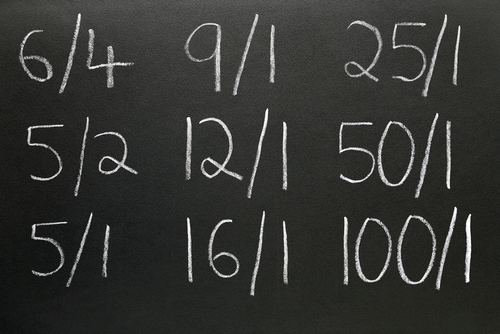

The intelligent shopper notices when an item’s prices are higher than they were on a previous visit and finds a substitute accordingly. To use another analogy, a +EV bettor is like a shrewd supermarket shopper. What it Looks Like to Place a Bet With Positive Expected Value Expected value betting doesn’t guarantee long-term success, but gambling without EV considerations guarantees long-term failure. To do so, a bettor must think critically. Very few sports bettors make significant money long term, but smart bets can, at the very least, keep bettors afloat to play recreationally. A bettor needs to win 52.38% of their bets just to break even.Īll that being said, sportsbooks historically hold between 5% and 8% profit on total money wagered, meaning sports betting gives players some of the best winning chances of any legal gambling form. This means bettors are paying what is essentially an extra 5% levy on every bet, win or lose. Virtually every retail and online sportsbook charges at least a 5 percent fee (4.54% to be exact) on the betting line, also known as the vigorish or “vig.” For example, if a sportsbook assigns both teams a 50% chance to win, both teams’ lines are -110 (52.38% implied probability) instead of +100.
#Convert moneyline to percentage free
There’s a reason many sportsbooks, whether in Las Vegas, New Jersey, Illinois, Colorado, or Pennsylvania, give their customers betting bonuses, free drinks, and other perks. Even the most profitable bettors win “only” around 55%-56% of bets. They employ the best oddsmakers, programs, and algorithms to find the most efficient lines. Sportsbooks in Las Vegas (and now more than a dozen other states) have spent decades evaluating hundreds of thousands of sporting events. A +EV bettor is a stockbroker looking to sell high and buy low.Īs much as most sports bettors overestimate their betting acumen, it is all but impossible to win long term by merely hoping to find winners. A casual bettor is more like a roulette player hoping their color is called. Positive expected value betting is a foundational method to sports betting, one that casual bettors, often referred to as “the public,” don’t use enough. By Thursday, oddsmakers have adjusted their lines, and in an efficient market like the NFL, value bets are only available for a short time before the market catches up. The best NFL bettors make a habit of finding value early in the week. Those looking for expected value, or +EV, consider the lines (and, by extension, probability) oddsmakers give to every game, often as early as possible, and try to figure if a bet is overvalued or undervalued. One common beginner sports bettor mistake is that they scramble through the board last minute, or look at NFL odds on Sunday morning, hoping to pick the day’s winners. Weighing bets by expected value gives sharp bettors a fundamental advantage over most other bettors and one of the few edges they can take against a sportsbook. Why is Expected Value Important for Sports Bettors? If that bettor believes the team has a less than 50% chance to win, they would assign a negative expected value (-EV). If a bettor believes that in this game the Seahawks actually have a greater than 50% chance to win, they would assign a positive expected value (+EV). For example, if a book assigns a team - let’s say the Seahawks against the Patriots– a +100 line, that translates to a 50% winning probability, or a coin flip.


Conversely, a -190 favorite is more likely to win than a -120 favorite.īettors can convert these line numbers into an implied probability. This means a +100 underdog is more likely to win than a +240 underdog (according to the book). In this system, the line number increases as the likelihood of winning decreases, and the line number decreases as the likelihood of winning increases. sportsbooks exclusively use what are called American odds, with positive figures (such as +100, +222, etc.) assigned to the underdog and negative figures (-120, -155, etc.) given to the favorite. Oddsmakers assign their probability through betting lines, which bettors see assigned to all moneylines, point spreads, totals and any other bet type. What Is Sports Betting Expected Value?Īt its simplest, expected value in sports betting is a way to measure the probability gap between a bettor’s expectations - and the sportsbook’s.


 0 kommentar(er)
0 kommentar(er)
